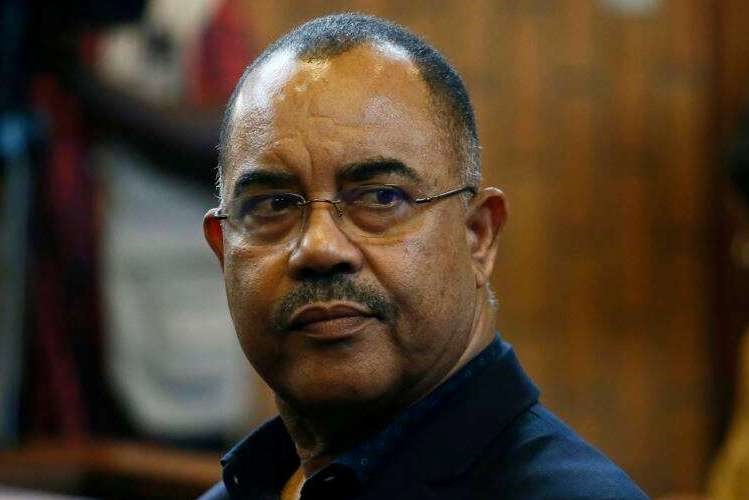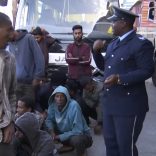Mozambique: Nigerian arrested in Maputo with 90 kg of suspected methamphetamine
Ex-Moz minister stays put in SA, wont be extradited home to face R30bn fraud case

Former Mozambican finance minister, Manuel Chang, in court in Kempton Park, Johannesburg, earlier this year. [File photo: Phill Magakoe/AP ]
Mozambique has lost its bid for leave to appeal in its extradition battle with South Africa.
A full bench of the South Gauteng High Court, Johannesburg, last month delivered a judgment that empowered Justice Minister Ronald Lamola to decide which country to extradite Mozambique’s fraud-accused former finance minister Manuel Chang.
Mozambique and the United States both wanted Chang, currently in South Africa’s Modderbee prison, handed over to them for prosecution.
The fraud he allegedly took part in cost investors R30-billion. The money was issued as loans for maritime projects in Mozambique.
Mozambique said it wanted to bring Chang to book because it suffered dearly to the fraud, while the US wanted to prosecute him on grounds that most of the defrauded investors were its citizens.
The November ruling by full bench comprising Judges Colin Lamont, Denise Fisher and Edwin Molahlehi set aside the decision by Lamola’s predecessor, Michael Masutha, to extradite Chang to the neighbouring Mozambique.
Masutha took his decision in his last day in office, just before President Cyril Ramaphosa replaced him with Lamola.
The court agreed with Lamola in its November judgment that Masutha’s decision was irrational and illegal.
The court accepted that Chang may not be prosecuted in Mozambique, as he allegedly enjoyed immunity on grounds of being a member of parliament.
Chang has since resigned as MP in Mozambique. He was arrested at the OR Tambo International Airport on behest of the US, which intercepted his Dubai travel schedule.
Mozambique was back before the full bench on Wednesday to seek leave to appeal the ruling.
The country’s government argued that there were a litany of errors in the judgment.
William Mokhari SC, an advocate for Mozambique in the matter, told the court that its reading of submissions whether Chang enjoyed immunity from prosecution was the most erroneous.
Said Mokhari: “The issue of immunity is central (to this matter). Is it absolute immunity or not?
“On the interpretation … by the court it is absolute. But that is an interpretation issue. We submit that there are prospects of success, that the Supreme Court of Appeal will interpret… differently.”
However, Lamola’s advocate on the matter, Vincent Maleka SC, argued that Mozambique had no prospects of successfully appealing the ruling.
Maleka said the reasons Mozambique wanted to ventilate at the Supreme Court of Appeal have already been heard by the full bench and dismissed.
“There’s nothing that compels a further hearing of this matter,” he said.
In the end, the court found against Mozambique and dismissed its application.
“There’s no reasonable prospect for another court to reach a different conclusion and accordingly, the application for leave to appeal is dismissed,” said Judge Lamont, reading a judgment agreed by all three judges.
Mozambique was South Africa’s long-time ally, with ties dating back to the Struggle against colonialism.
But the country’s government believed that Lamola favoured the US in this extradition issue.
By Bongani Nkosi













Leave a Reply
Be the First to Comment!
You must be logged in to post a comment.
You must be logged in to post a comment.